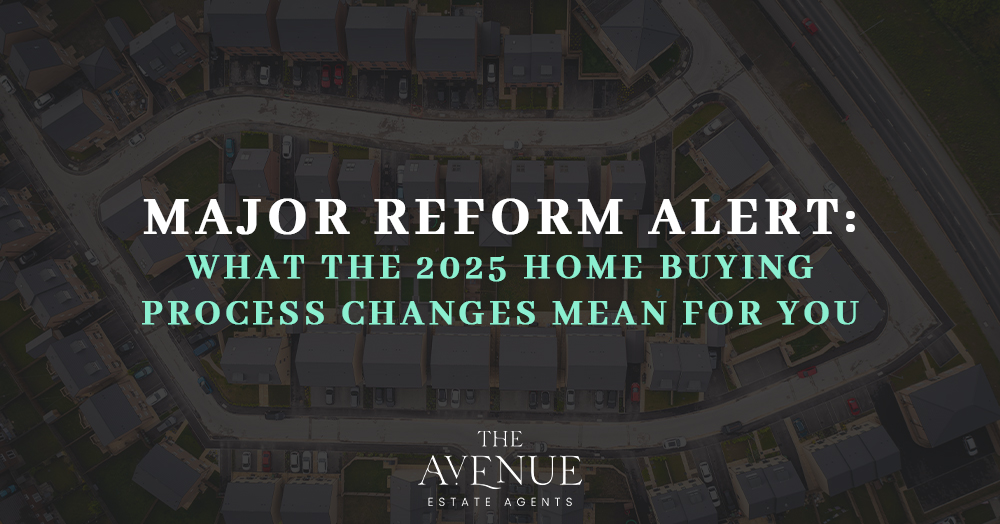In October 2025, a significant shift started to take shape in the UK property market, one that will affect both buyers and sellers alike.
The Ministry of Housing, Communities and Local Government launched a consultation on a broad range of proposed reforms to the home‑buying and selling process, with the clear aim of making transactions faster, cheaper and more reliable. (Source:
GOV.UK)
For anyone intending to buy or sell in 2026 (or even late 2025), understanding these proposals and adjusting your strategy now can give you an edge.
📌 What’s Changing?
Here are the headline proposals that are gaining most attention:
- Mandatory provision of detailed upfront property information (condition reports, leasehold details, service charge, etc) by sellers before advertising. (Source: The Guardian)
- Reduction of the transaction timeline by around four weeks, targeted by the Government to cut delays and failed deals. (Source: The Guardian)
- More binding pre‑contract agreements to reduce fall‑throughs, which means once an offer is accepted there will be less scope for either party to delay major checks or pull out (Source: Fuller Gilbert)
- Digital enhancements and data-sharing to improve transparency and efficiency throughout the conveyancing process. (Source: GOV.UK)
These changes are currently under consultation (6 Oct 2025 – 29 Dec 2025) so nothing is final yet. But the momentum is clear. (Source:
GOV.UK)
🧠 Why This Matters For Sellers & Buyers
For Sellers
- Preparing your home now for these reforms shows you are ahead of the game. Having key documentation ready will help you market the property more quickly and with greater confidence.
- Because buyers will increasingly demand faster timelines and clearer information, you’ll need to be ready, slow or unclear listings may lose out.
- If you plan to list in early 2026, the new rules may make it harder to delay‑advertise without full packs in place. Better to start listing under current rules before transitions fully roll in.
For Buyers
- Fewer delays and more transparency mean you’ll likely face less uncertainty and fewer hidden surprises that can derail a purchase.
- Being prepared (mortgage in principle, solicitor lined up, offering strategy) will give you a competitive edge in a market where efficiency becomes a differentiator.
- Even though reforms aim to reduce costs, you still need to budget and act as if timelines may remain tight during the transition period.
📊 Strategic Implications & Timing
The proposed reforms coincide with a market already showing signs of
hesitation, partly due to the upcoming Autumn Budget and potential tax changes. According to the Royal Institution of Chartered Surveyors (RICS) survey for September, buyer demand and agreed sales remain negative for a third consecutive month. (Source:
RICS)
What this means:
- There is a window of opportunity for moves this side of full policy rollout where fewer buyers will be competing, but also where buyers will hold back for certainty.
- Sellers who move quickly and efficiently, with strong pricing, high‑quality marketing, and full prep will stand out.
- Buyers with readiness and agility will also benefit: less competition, better positioning, and clearer timelines.
🔍 What You Should Do Now
- If you’re selling, gather all key documents now: condition, service charge (if relevant), ownership/leasehold data. Ask your agent to prepare a marketing pack that aligns with the new proposed standards.
- If you’re buying, ensure your financing, surveyor, and solicitor are aligned, be among the few who can move quickly when the right home comes along.
- For both buyers and sellers: Book a strategy session with your Avenue agent to review your current position in light of these reforms.
- Remember: reforms are coming, but risk and reward remain in 2025. Don’t delay just because “things might change” be proactive.
FAQs
❓ When will the new home‑buying reforms come into effect?
The consultation runs until 29 December 2025. Implementation timing has not yet been confirmed, though many industry commentators expect phased changes beginning 2026. (Source:
GOV.UK)
❓ Will the reforms cost more or less for buyers/sellers?
The aim is cost‑reduction overall (fewer failed sales, reduced delays) but some sellers may face higher upfront preparation costs (e.g. for full disclosure packs) before advertising. (Source:
Fuller Gilbert)
❓ Does this change affect reservation agreements (as we use at The Avenue)?
Yes, once new rules emphasise early commitment and fewer fall‑throughs, tools like reservation agreements become even more powerful in helping you stand out and secure deals.
